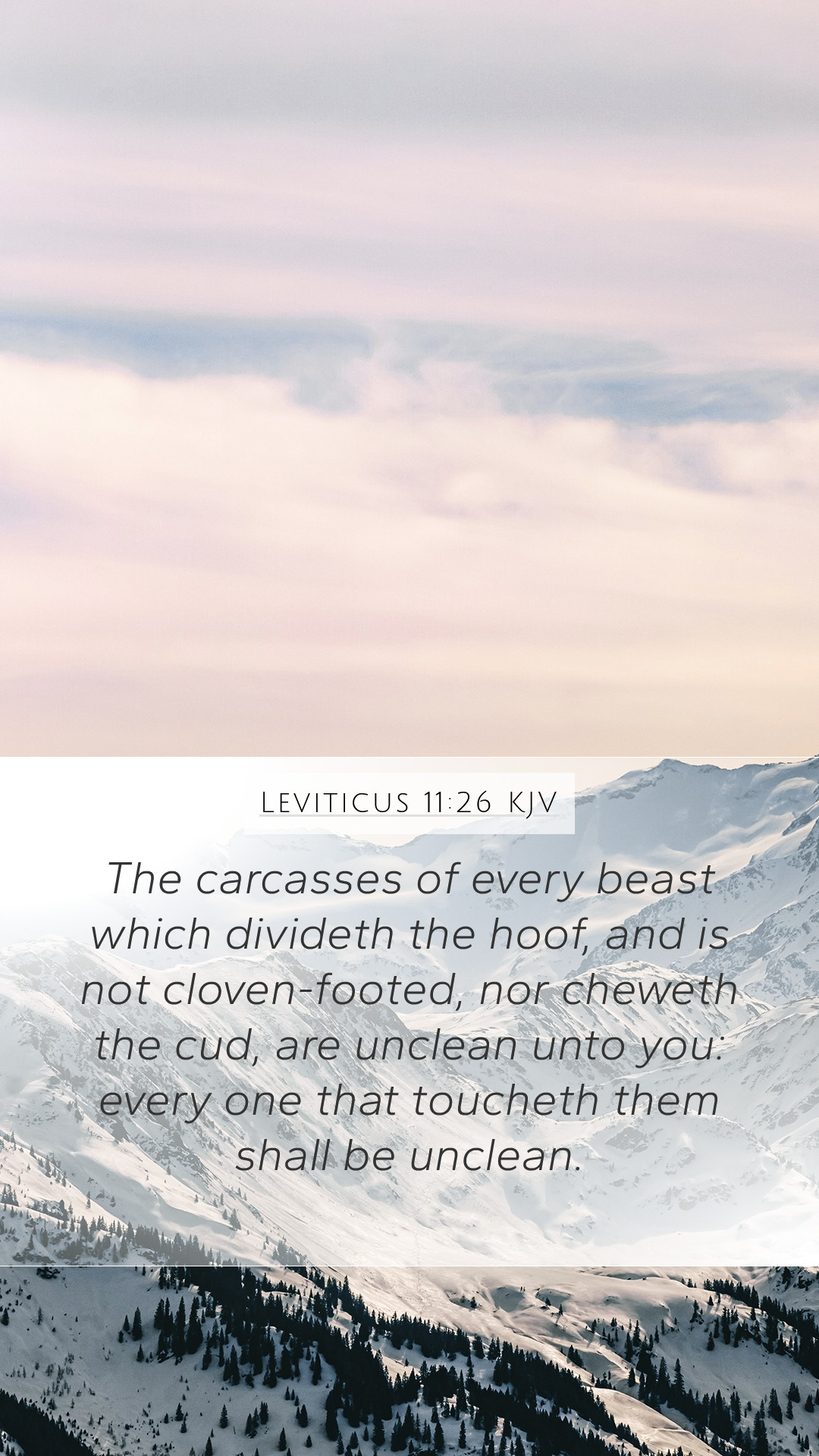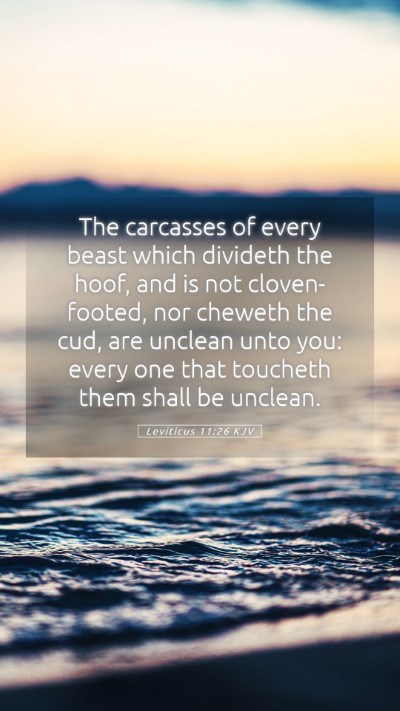Understanding Leviticus 11:26
Verse Context: Leviticus 11:26 states, "The carcasses of any animals that do not have a split hoof or that do not chew the cud are unclean for you; whoever touches their carcasses will be unclean till evening." This verse is part of the dietary laws given to the Israelites, emphasizing what is clean and unclean in their diet.
Bible Verse Explanations
This verse elucidates the concept of ritual purity as commanded by God. The Israelites were instructed to maintain a strict diet that consisted of animals that meet specific criteria—having split hooves and chewing the cud. These dietary restrictions were not arbitrary; they served a deeper purpose in the life of the community.
Insights from Matthew Henry
Matthew Henry describes the dietary laws in Leviticus as a means of distinguishing the Israelites from other nations. He emphasizes that cleanliness and holiness in food reflect a broader principle of spiritual purity. The food laws cultivate a sense of discipline and reverence for God's commandments.
Insights from Albert Barnes
Albert Barnes remarks on the dual characteristics that determine clean animals: the split hoof symbolizes separation and distinction, while chewing the cud represents true nourishment and reflection on God’s provisions. Barnes points out that these laws were practical for health and served as a moral lesson for the Israelites.
Insights from Adam Clarke
Adam Clarke elaborates on the spiritual implications behind dietary restrictions. He argues that they symbolize a greater call to holiness. The unclean animals serve as metaphors for sin and impurity. Touching the carcass, therefore, signifies falling into spiritual uncleanliness.
Significance of the Verse
This verse serves several functions in both historical and theological contexts:
- Health and Hygiene: The dietary laws can be seen as beneficial for physical health, emphasizing proper food consumption.
- Identity and Holiness: They distinguished the Israelites from other cultures, promoting a sense of divine identity and moral standards.
- Spiritual Lessons: The laws serve as reminders of the need for spiritual purity and the importance of adhering to God's commandments.
Bible Study Insights
For those involved in Bible study groups, Leviticus 11:26 presents an opportunity to discuss how dietary laws apply to today's understanding of holiness. It's essential for Bible study lessons to delve into how these ancient laws can be interpreted and applied in contemporary Christian life.
Cross References
- Deuteronomy 14:6-8 - Further elaboration on clean and unclean animals.
- Leviticus 20:25 - God's call to the Israelites to distinguish between the clean and unclean.
- Isaiah 66:17 - A condemnation of those who eat unclean things.
Conclusion and Reflection
In summarizing the meaning of Leviticus 11:26, it is essential to reflect on how God's laws are not just rules but part of a relationship that emphasizes His holiness and the call for His people to live distinct lives. The challenge for believers today is to understand the underlying principles of these laws and strive for spiritual cleanliness in all aspects of life.


